Table of Contents
Reishi Mushroom: The Ancient “Mushroom of Immortality” for Modern Health
Reishi mushroom (Ganoderma lucidum), often called the “mushroom of immortality,” has a rich history in traditional medicine and is now recognized globally for its incredible health benefits. With a wide range of uses, from boosting the immune system and fighting inflammation to promoting relaxation and heart health, reishi is a versatile natural remedy that has stood the test of time.
In this detailed guide, we’ll explore the history, health benefits, and practical uses of reishi mushroom, along with how you can incorporate it into your daily wellness routine. We’ll also discuss important safety considerations to ensure you enjoy the benefits of reishi safely.
This site contains affiliate links, and I may receive a commission on purchases made through them. Please see our Affiliate Disclosure for more details.

Historical Significance
Ancient Use in Traditional Chinese Medicine (TCM)
Reishi mushroom, known as Lingzhi in Chinese, has been used for over 2,000 years in Traditional Chinese Medicine (TCM). It was highly revered in ancient China as a symbol of longevity, vitality, and divine power. Because of its rarity and effectiveness, reishi was often reserved for royalty and the wealthy, earning the nickname “mushroom of immortality.”
The earliest documentation of reishi’s use can be traced back to the Eastern Han dynasty (25–220 CE), where it was described as a powerful tonic that could improve life force, restore balance, and prevent disease. According to ancient Chinese herbalists, reishi was believed to support the shen (spirit) and qi (life force), promoting physical, mental, and spiritual well-being. It was considered a harmonizer, capable of enhancing overall health and helping the body resist illness and stress.
Symbol of Longevity and Vitality
In Chinese culture, reishi is often depicted in art, literature, and folklore as a symbol of vitality and immortality. The mushroom was believed to enhance jing (vital essence), which, according to Chinese philosophy, is the fundamental energy that determines the length and quality of life. Reishi’s association with longevity made it a prized medicinal mushroom, used not only to heal sickness but to maintain long-term health and vitality.
Reishi in Other Cultures
While reishi has its origins in China, it has been used throughout Asia, particularly in Japan, Korea, and other East Asian countries. In Japan, it is called Mannentake, meaning “10,000-year mushroom,” another reference to its longevity-promoting qualities. Japanese herbalists have used reishi to boost the immune system, reduce stress, and support cardiovascular health.
Reishi was traditionally harvested from dead or dying hardwood trees in the wild, but due to its scarcity, modern cultivation techniques have made this valuable mushroom more accessible for use around the world.
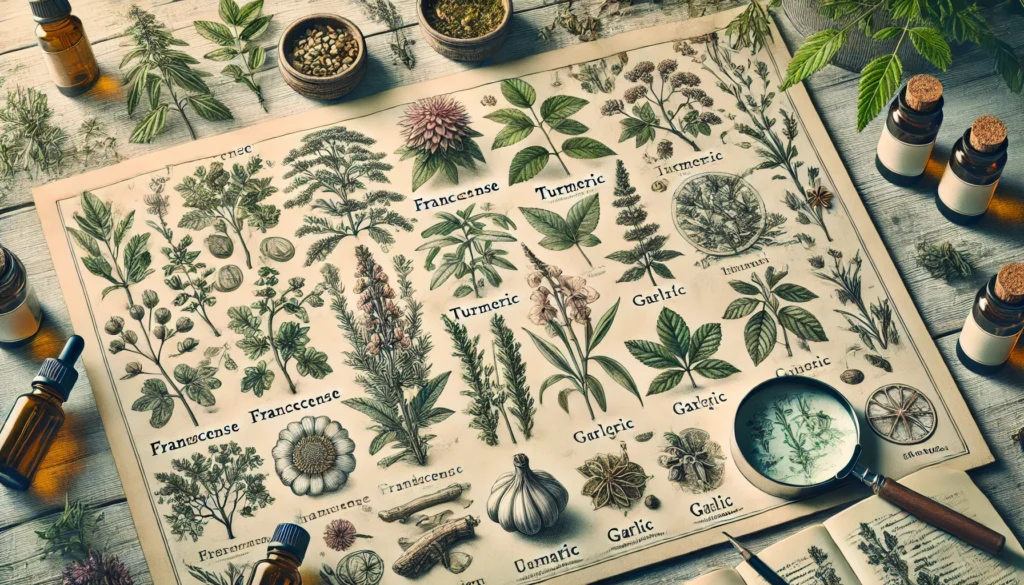
Botanical Profile
Fungal Overview
Reishi mushroom belongs to the Ganodermataceae family, with Ganoderma lucidum being the most well-known species. The mushroom is easily recognizable by its large, glossy, red-brown cap, which has a shiny, varnished appearance. Unlike many edible mushrooms, reishi has a tough, woody texture, making it unsuitable for direct consumption in meals. Instead, reishi is often processed into extracts, powders, teas, and tinctures to make its medicinal compounds more accessible.
Reishi mushrooms primarily grow on decaying hardwood trees, especially oak, maple, and elm. While they are native to the forests of Asia, they can also be found in parts of North America and Europe. The cultivation of reishi mushrooms in controlled environments has allowed for a consistent supply of this valuable medicinal mushroom.
Growing Conditions
Reishi mushrooms thrive in humid, temperate forests where they grow in the wild on hardwood trees. Today, most reishi used for medicinal purposes is grown on logs or sawdust in controlled environments that mimic their natural habitat. This ensures high-quality mushrooms with a consistent concentration of bioactive compounds.
Reishi requires a warm, moist environment to grow, and it typically takes several months to a year for the mushrooms to mature and develop their characteristic glossy, red-brown caps. The harvesting process is careful and meticulous, as the mushrooms need to be collected at the right time to preserve their potency.
Different Species
While Ganoderma lucidum (red reishi) is the most studied and commonly used species, there are other species of reishi, including Ganoderma tsugae (also known as hemlock reishi), which grows on coniferous trees. These species share many of the same health benefits but may differ slightly in their phytochemical profiles and potency.
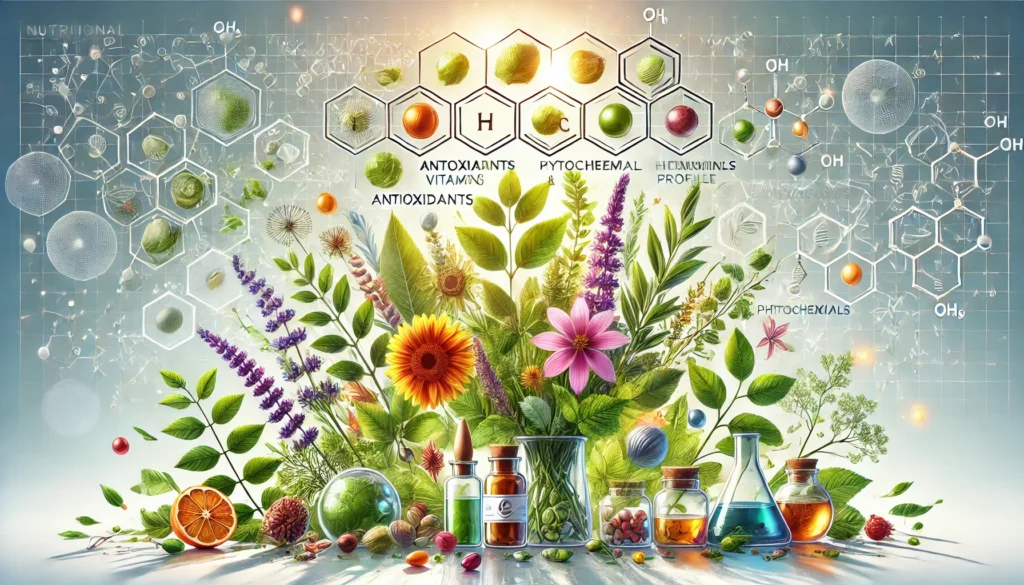
Nutritional and Phytochemical Profile
Reishi mushroom’s health benefits are largely attributed to its rich phytochemical composition. The mushroom contains a wide range of bioactive compounds that work synergistically to support immune function, reduce inflammation, and promote overall health.
Active Compounds
- Triterpenes: Reishi mushrooms are particularly rich in triterpenes, a class of compounds known for their anti-inflammatory and antioxidant effects. Triterpenes help reduce inflammation throughout the body, protect cells from oxidative damage, and support immune function. They also contribute to reishi’s ability to reduce stress and support cardiovascular health by lowering blood pressure and cholesterol levels.
- Polysaccharides: Reishi is also a rich source of polysaccharides, including beta-glucans, which are well-known for their immune-boosting properties. These compounds enhance the activity of white blood cells, helping the body defend itself against infections. Polysaccharides also have antioxidant properties, protecting the body from free radical damage and supporting overall cellular health.
Other Bioactive Compounds
In addition to triterpenes and polysaccharides, reishi contains other bioactive compounds, including peptidoglycans and alkaloids, which contribute to its immune-modulating, antiviral, and anti-cancer effects. Reishi is also a source of essential amino acids, vitamins, and minerals that support general health and wellness.
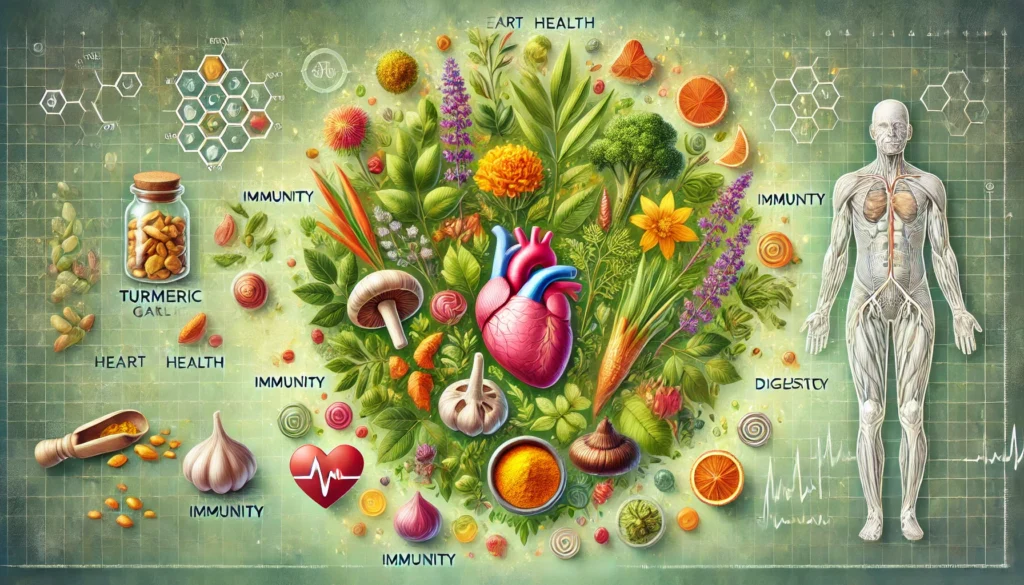
Health Benefits of Reishi Mushroom
Reishi mushroom offers a broad range of health benefits, making it one of the most versatile and powerful medicinal mushrooms available. Here are some of the most well-documented and widely recognized health benefits of reishi:
Immune System Support
Reishi mushroom is best known for its immune-boosting properties. The polysaccharides and beta-glucans in reishi enhance the activity of white blood cells, particularly macrophages and natural killer (NK) cells, which play a critical role in the body’s defense against infections. By strengthening the immune system, reishi helps the body fight off viruses, bacteria, and other pathogens more effectively.
Research has shown that reishi can modulate the immune system, meaning it not only boosts immune activity when needed (such as during an infection) but also helps regulate and balance the immune response, making it useful for individuals with autoimmune conditions.
Reduces Stress and Promotes Relaxation
Reishi mushroom is classified as an adaptogen, meaning it helps the body adapt to and manage stress. By supporting the adrenal glands and regulating the production of cortisol (the stress hormone), reishi helps reduce feelings of anxiety, improve mental clarity, and promote a sense of calm and well-being.
Many people use reishi to support relaxation and sleep, as its calming effects can help improve sleep quality and treat insomnia. Reishi’s adaptogenic properties also make it useful for managing chronic stress, which can take a toll on both mental and physical health.
Anti-inflammatory Properties
The triterpenes in reishi are powerful anti-inflammatory compounds that help reduce inflammation throughout the body. Chronic inflammation is a major contributor to many health conditions, including arthritis, asthma, and heart disease. By reducing inflammation, reishi can help alleviate symptoms of these conditions and promote overall health.
Reishi’s anti-inflammatory effects are particularly beneficial for individuals with autoimmune disorders, where inflammation is often a key factor in disease progression.
Supports Heart Health
Reishi mushroom has several heart-protective effects. The triterpenes in reishi help lower blood pressure by relaxing the blood vessels and improving circulation. Additionally, reishi has been shown to reduce LDL (bad) cholesterol levels while increasing HDL (good) cholesterol, promoting overall cardiovascular health.
For individuals with high blood pressure or high cholesterol, incorporating reishi into their wellness routine may help reduce the risk of heart disease and stroke.
Antioxidant Power
Reishi is packed with antioxidants, which help protect the body from oxidative stress and free radical damage. Free radicals are unstable molecules that can damage cells and contribute to the development of chronic diseases like cancer, heart disease, and diabetes. By neutralizing these free radicals, reishi helps reduce the risk of chronic disease and supports overall cellular health.
The antioxidant properties of reishi also contribute to its anti-aging effects, helping to protect the skin from damage and promoting a youthful appearance.
Anti-cancer Potential
Emerging research suggests that reishi mushroom may have anti-cancer properties. Some studies have shown that reishi can inhibit the growth of cancer cells and promote apoptosis (programmed cell death) in certain types of cancer. Additionally, reishi’s immune-boosting effects help the body’s natural defense mechanisms fight cancerous cells.
While reishi is not a standalone treatment for cancer, it shows promise as a complementary therapy that can support the immune system and improve the body’s ability to fight cancer.
Liver Detoxification
Reishi mushroom is known for its **he
patoprotective** effects, meaning it helps protect the liver from damage and supports liver function. The liver is the body’s primary detoxification organ, responsible for filtering toxins from the blood and breaking down harmful substances. Reishi helps promote liver detoxification and may aid in the recovery of liver function in individuals with liver disease or damage from alcohol or medications.
Sleep Support
Reishi’s calming and adaptogenic properties make it a natural remedy for improving sleep quality. It helps reduce stress and anxiety, allowing the body and mind to relax, which can lead to better, more restful sleep. For individuals who struggle with insomnia or poor sleep, reishi can be taken in the evening to promote relaxation and support a healthy sleep cycle.
Balances Hormones
Reishi mushroom helps balance hormones, particularly cortisol, which plays a key role in the body’s stress response. By supporting adrenal health and regulating cortisol levels, reishi helps the body cope with stress more effectively. This can be particularly beneficial for individuals experiencing adrenal fatigue or chronic stress, as reishi helps restore balance and improve energy levels.
Anti-Aging and Skin Health
The antioxidants and anti-inflammatory compounds in reishi help promote youthful skin by reducing wrinkles, improving skin elasticity, and protecting the skin from oxidative damage. Reishi is increasingly used in skincare products for its anti-aging properties and ability to reduce inflammation, making it useful for treating conditions like eczema and acne.
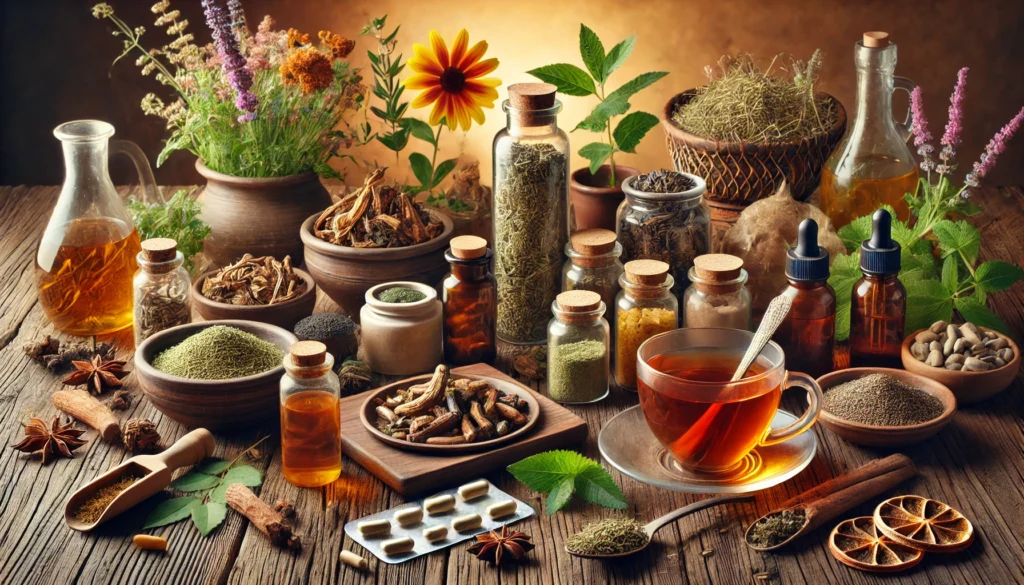
Methods of Consumption
Reishi mushroom can be consumed in several forms, depending on your health goals and preferences. Here are the most common methods:
Reishi Tea
One of the simplest ways to enjoy reishi mushroom is by brewing it as a tea. Reishi tea is made by simmering dried reishi slices or powder in hot water for 15–20 minutes. The resulting tea has a mild, earthy flavor and can be consumed daily for immune support, relaxation, and overall wellness. Some people add ginger or honey to enhance the flavor.
Reishi Capsules and Tablets
For those who prefer a more convenient way to take reishi, capsules and tablets are widely available. These supplements provide a standardized dose of reishi extract, making it easy to incorporate into your daily wellness routine. Capsules are particularly useful for individuals who want to take reishi for specific health conditions like immune support or heart health.
Reishi Powder
Reishi powder is another popular form of consumption. The powder can be added to smoothies, soups, or beverages for a daily health boost. Reishi powder is a great option for those who want to incorporate the mushroom into their diet in a more versatile way.
Tinctures and Extracts
Reishi tinctures and liquid extracts provide a concentrated dose of the mushroom’s active compounds. These can be taken in small amounts (a few drops) for quick, powerful effects. Tinctures are especially useful for individuals looking for fast-acting relief from stress, anxiety, or sleep issues.
Topical Reishi
Reishi is also used in topical creams and serums for skin health. These products harness reishi’s anti-inflammatory and antioxidant properties to reduce wrinkles, improve skin elasticity, and promote a youthful complexion.
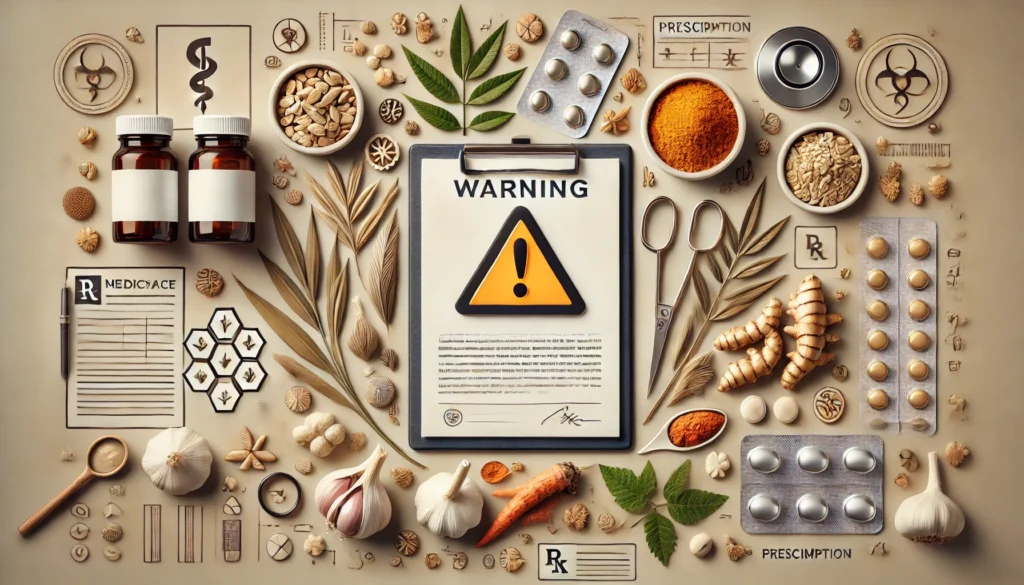
Cautionary Advice
While reishi mushroom is generally safe for most people, there are a few precautions to keep in mind:
Potential Side Effects
Some people may experience mild side effects when taking reishi, including digestive upset, dry mouth, or skin rashes. These side effects are typically mild and resolve on their own, but if they persist, it’s best to reduce the dosage or discontinue use.
Medication Interactions
Reishi may interact with certain medications, particularly blood pressure medications, blood thinners, and immunosuppressants. If you are taking any of these medications, it’s important to consult with a healthcare provider before incorporating reishi into your routine.
Safe Dosage
The recommended dosage for reishi depends on the form you are using. For dried reishi, the typical dose ranges from 1.5 to 9 grams per day. For reishi extracts or powders, follow the manufacturer’s instructions. If you’re new to reishi, start with a lower dose and gradually increase to avoid any potential side effects.
Pregnancy and Nursing
There is limited research on the safety of reishi during pregnancy or breastfeeding, so it’s best to consult with a healthcare provider before using reishi if you are pregnant or nursing.
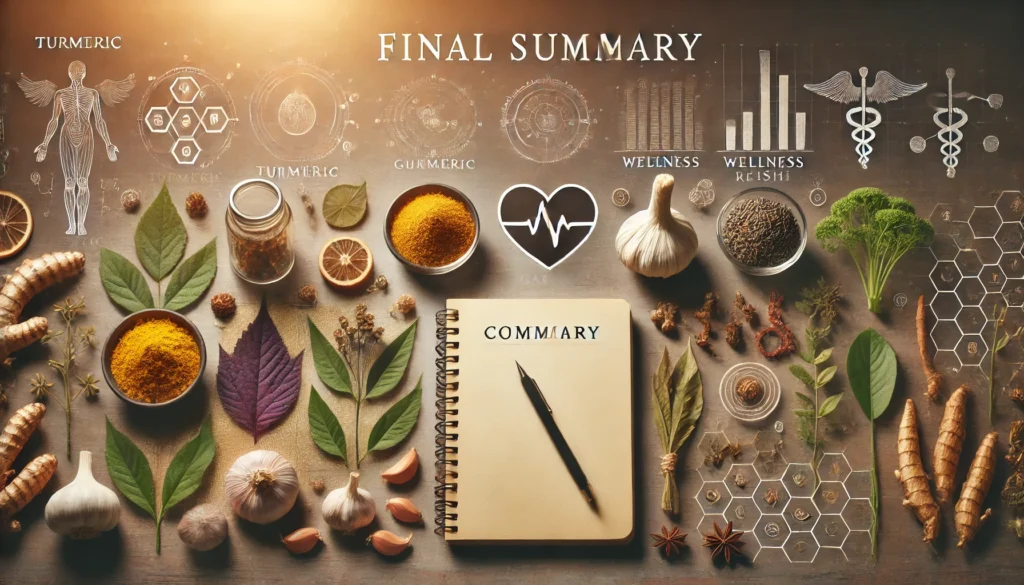
Conclusion
Reishi mushroom is one of the most revered medicinal mushrooms, with a long history of use for promoting health and longevity. From supporting the immune system and reducing stress to improving heart health and protecting the liver, reishi offers a wide range of health benefits that make it a valuable addition to any wellness routine.
Whether you choose to enjoy reishi as a tea, take it in supplement form, or use it topically for skin health, this powerful mushroom has something to offer everyone. Just remember to use it responsibly, paying attention to dosage and any potential interactions with medications.
Explore the many ways to incorporate reishi mushroom into your daily life and experience its natural healing power for yourself.
